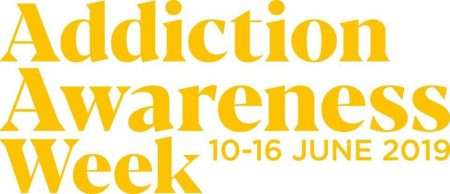You may be wondering if you or someone you know has an addictive personality. And probably, we’ve all been obsessed over something at some point. But is obsession the same as addiction? Does this mean we have an “addictive personality”? While some of us tend to get hooked on things more easily than others, the so-called “addictive personality” can be misleading. There is no medical diagnosis for such a condition.
Rehab Costs & Options for Alcohol | Drugs | Other addictions
Certain personality traits are often found in people with addictions, but there is no specific set of traits or behaviours that apply to all. Although professionals continue to explore the connection between the two, there is more to addiction than a formula.
What is An Addiction Really?
Addiction is a complex subject. It is not a disease that is caused by a virus, there are no genetic predispositions that guarantee its development. Addiction is more than that.
However, it has been proven that there are a number of genetic, psychological and environmental factors that can make a person more prone to addiction. Also, some substances are more addictive than others. However, no set combination of these can be said to cause addiction. A person can have none of these factors and still become addicted, or they can have all of them and never develop a problem.
Addiction is classified as a legitimate medical disorder and there are a set of symptoms that are found in all addicted persons. Although there are personality traits common in people with addictions, there are no universal signs that constitute the label “addictive personality disorder”.
We nearly all exhibit some signs of an addictive personality at some time or other. Perhaps we need our daily fix of coffee every morning, or we spend an inordinate amount of time reading books. Is that an addiction? Not really.
Socially accepted behaviours, such as caffeine-drinking, excessive TV-watching, or obsessive fandom are not dangerous addictions unless people continue to follow them, despite serious negative consequences. Even when it comes to alcohol, a person who drinks a lot is not necessarily struggling with an alcohol misuse disorder.
An addiction has to have a significant negative impact on a person’s life or well-being to be a serious disorder. Your kid’s obsession with the movie “Frozen” is probably not a cause for alarm. However, if your child spends so much time playing video games that they miss out on schoolwork or socialising, that’s a different story.
The Addictive Personality: Addiction and Dual-Diagnosis
The interest of professionals in the “addictive personality” may have been influenced by high rates of dual-diagnosis among people with addictions. Many addicts have underlying conditions, such as depression, PTSD, or a personality disorder that contribute to their addiction. For example, depressive symptoms are noted in about 30-50% of drinkers struggling with addiction.
In a study from 1995, data showed high levels of prevalence of personality disorders in addicted individuals. Depending on the substance, this ranged from 44-79%. Of all of these, antisocial personality disorder (ASPD), borderline personality disorder (BPD) and avoidant personality disorder (APD) were the most common. Of course, there are many personality disorders, and each one is different. While they share some commonalities, ultimately, they are not the same thing.
Some years ago, Alcoholics Anonymous theorised that alcoholism is a form of antisocial personality disorder. While the symptoms of the disorder are found in about 58% of people with alcohol use disorder, it does not speak for the rest of them. In addition, there are many people with ASPD that do not have any addictions.
Having a mental health issue can make a person more prone to addiction, but not necessarily because of the issue itself. A person may have developed the problem because they were raised in a poor environment. However, a poor environment itself might indirectly contribute to addiction.
Signs of an Addictive Personality
Although there are no universal characteristics, there are certain behaviours or traits that are commonly noticed among addicted individuals. The traits of an addictive personality, or those that are often noticed in people with addictions, include:
- Impulsivity
- Risk-taking
- Cautious behaviour
- Adventure or sensation-seeking behaviour
- Obsessive and compulsive behaviour
- Low self-esteem
- Nonconformity
- Anti-social or deviant behaviour
- High levels of stress or anxiety
- High emotional response
- Apathetic manner
- Lack of coping skills or self-regulation
- Lack of commitment to personal values, goals or achievement
You may think that some of these are contradictory. How can someone be on edge with high levels of anxiety and be apathetic at the same time? How can someone be cautious and a risk-taker? This demonstrates that there is no easy-to-spot addictive personality. If anything, there may be multiple types of addictive personalities.
Correlation is Not Causation
Quite often, research into addictive personality produces complexity and confusion. For example, it is true that people with low self-esteem can be more prone to addiction, but the correlation between the two does not prove causation.
Likewise, someone who has good self-regulation and control over their lives is less likely to be addicted. However, that person may live in a high-stress environment and turn to substances as a coping mechanism.
In addition, people with the mentioned traits can develop a substance misuse problem but not an actual addiction. There is a difference. If we were to identify an “addictive personality formula”, a person who does not have the signs and symptoms of such may falsely believe they are safe and cannot be addicted. But addiction can happen to anyone.
Alternatively, a person who defines themselves by their “addictive personality” may come to accept addiction as their fate. This may discourage them from getting treatment if they ever develop a problem.
The concept of an addictive personality is largely misunderstood and tends to have negative connotations. However, paradoxically, some of these traits can be positive signs too. For example, compulsive risk-taking can also be an indication of a strong leader. If we start associating certain characteristics with the stigmatised image of an addict, we may end up suppressing a functional, healthy person’s personality.
How can I identify a problem?
Addiction is more than just personality. It is the combination of a number of factors. While some of these can be found in people with addictions, they do not automatically predispose them to it.
Having said that, although you cannot use personality traits to diagnose a person, they can often be used to identify someone who’s at high risk of addiction. However, in such cases, one should also remember that other factors, such as environment, have a strong influence as well.
Rather than trying to predict the future, it is better to take an educated view and watch out for a potential problem.
While an alcohol or drug problem may be easier to recognise, behavioural addictions can be less so. If you are worried about yourself or someone else, it is best to look for specific signs of addiction.
If an activity is causing negative consequences in your life, you might have a problem. If you continue with the activity despite these consequences, you are very likely to have a problem. Any behaviour that concerns you should be addressed with professional help.


